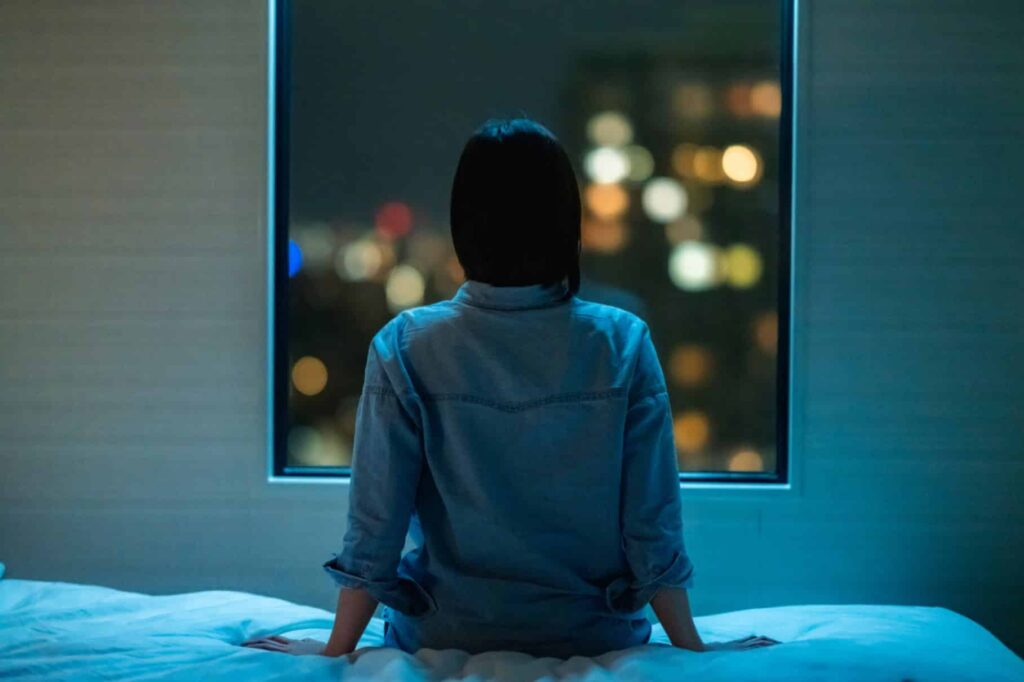Though it’s commonly thought of as just a disorder causing insomnia, the effects of insomnia go well beyond insomnia during the night. Although difficulty falling or staying asleep is the characteristic of insomnia, its repercussions can affect a person’s mental and emotional health in many other ways. This article explores the complex connection between psychological symptoms and insomnia, providing insight into how sleep disturbances might affect mental health.
The Intersection of Sleep and Mental Health
Sleep is an essential component of our general health since it affects our ability to think clearly, control our emotions, and maintain good physical health. Sleep disturbances, whether brought on by insomnia or other sleep disorders, can set off a series of negative psychological effects. Although it takes different forms in different people, insomnia, which is defined as continuous trouble falling asleep or staying asleep even when given enough opportunity, has similar psychological effects.
Cognitive Effects of Insomnia
Impairment of cognition is one of the main psychological symptoms linked to insomnia. Cognitive processing and memory consolidation depend on sleep. These functions are disturbed by insufficient sleep, which makes it harder to focus, remember details, and make decisions. Cognitive impairments may have an impact on day-to-day activities, productivity at work, and academic success. This can exacerbate stress and anxiety related to perceived underperformance.
Emotional Impact
Mood stability and emotional regulation can be greatly impacted by insomnia. People who lack sleep are more prone to mood swings, impatience, and increased emotional reactivity because sleep loss modifies the brain’s capacity to control emotions. The likelihood of acquiring mood disorders including anxiety and depression is elevated in individuals with chronic insomnia. On the other hand, pre-existing psychiatric disorders may exacerbate or cause sleeplessness, resulting in a vicious cycle that necessitates focused treatment.
Stress and Insomnia: A Vicious Cycle
Stress is a major source of sleeplessness, whether it comes from relationships, the workplace, or health issues. Cortisol, which is released by the body in response to stress, has the potential to permanently alter the sleep-wake cycle. Stress and insomnia then feed off one other in a vicious cycle where stress increases as a result of inadequate sleep. It is essential to manage stress with mindfulness, relaxation techniques, and cognitive-behavioral tactics in order to break this cycle and enhance the quality of your sleep.
Behavioral Manifestations
Behavioral manifestations of insomnia may include compulsive sleep monitoring, erratic sleep regimens, and dependence on sleep aids. By upsetting the body’s natural circadian rhythms and strengthening unfavorable associations with sleep, these actions might prolong insomnia. Restoring healthy sleep patterns requires addressing maladaptive sleep practices with behavioral therapy and teaching sleep hygiene.
Impact on Quality of Life
Beyond its behavioral and psychological symptoms, insomnia can have a serious negative effect on a person’s general quality of life. Chronic sleep deprivation raises the risk of cardiovascular disease, metabolic diseases like diabetes, and weakened immune systems, among other physical health issues. Furthermore, sleeplessness can have a negative impact on resilience and general well-being when it accumulates and negatively impacts mental health, cognitive function, and interpersonal connections.
Treatment Approaches
Effective management of insomnia involves a comprehensive approach that addresses both the underlying sleep disturbances and associated psychological symptoms:
- Cognitive Behavioral Therapy for Insomnia (CBT-I): CBT-I is the gold standard in non-pharmacological treatment for insomnia. It combines cognitive therapy to address dysfunctional beliefs about sleep with behavioral techniques to improve sleep hygiene and regulate sleep-wake schedules.
- Medication: In some cases, short-term use of sleep medications may be prescribed to help alleviate acute symptoms of insomnia. However, these should be used cautiously due to potential side effects and risk of dependency.
- Relaxation Techniques: Practices such as progressive muscle relaxation, mindfulness meditation, and deep breathing exercises can promote relaxation and reduce arousal before bedtime.
- Sleep Hygiene: Establishing a conducive sleep environment, maintaining a regular sleep schedule, and limiting exposure to stimulating activities before bedtime are essential components of good sleep hygiene.
Seeking Professional Help
People who are suffering from severe psychological discomfort or chronic insomnia should contact a medical practitioner or sleep specialist for examination. A comprehensive evaluation can pinpoint the underlying causes of sleeplessness and provide tailored treatment plans. Effectively managing insomnia and enhancing general well-being require addressing co-occurring mental health problems like depression or anxiety.
In summary
More than merely a disturbed sleep pattern, insomnia is the result of a complicated interaction between behavioral, psychological, and physiological variables. We can recognize insomnia’s significant effects on mental health and quality of life by being aware of the psychological symptoms that are linked to the condition. In order to effectively manage sleep disruptions and psychiatric symptoms, evidence-based interventions must be used, and where necessary, competent professional help must be sought. People can recover deep sleep and improve their general psychological resilience and well-being by using targeted tactics and assistance.






